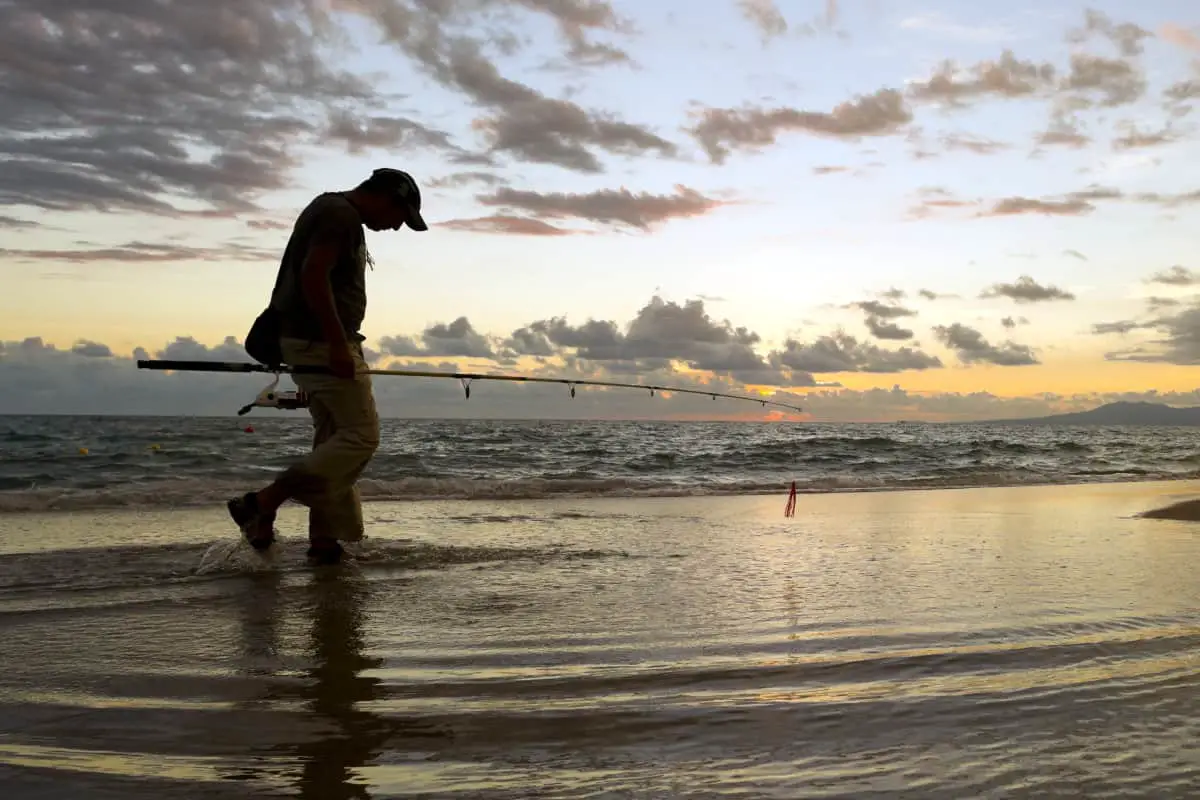Fishing is a testament to a person’s patience. Many consider it a meditative task where peace of mind trumps the need to catch fish. However, as you sit on the surf with a heart full of ambition but not a single fish in view, you may find yourself asking every angler question at one point or another- is fishing luck or skill?
Fishing is a combination of luck and skill. Being skilled at finding the best spot to fish or reeling in a fish line can improve your chances of catching a fish. However, if, for whatever reason, the fish aren’t tricked by your bait, there is little you can do to improve the situation. So, while skills are essential, the success of your fishing trip is mainly dependent on luck.
There is not much one can do about improving their luck. However, there are ways you can improve your skills to get better at fishing. This article will talk about how much fishing constitutes luck and what you can do to improve your fishing skills. So, if you want to learn some hacks to improve your fishing, keep reading.
Luck Vs. Skill Which Is More Important?
The debate over luck and skill is an age-old question in the fishing community. There have been cases where expert fishers have been down on their luck and have not made a single catch.
However, there are also times when a beginner catches the biggest fish in the ocean via a stroke of luck. With no specific pattern connecting events, no one can tell if fishing is a skill or luck.
However, it wouldn’t be correct to think of skill and luck as separate entities. After all, it is only when skill and luck work together that you can consider yourself a successful fisherman.
To find out which is more important, try getting to the root of the problem. Are you not catching fish because of your skills or your luck?
To find the root of the problem, evaluate your skills first. Look up the right way to attach bait and reel in fish. Are you using the proper techniques?
Can you throw and reel bait smoothly? Are you comfortable with your fishing rod ? Or does it feel awkward in your hand?
? Or does it feel awkward in your hand?
Try finding the answers to these questions. You can try fishing in a pool before hitting a lake or the sea to do.
Indoor fishing centers have giant pools full of fish. The fish aren’t fed right before peak fishing hours. So, the chances of catching fish with bait are higher.
If you are unable to catch fish in these pools, you need to brush up on your skills. Practicing in indoor pools is also a good way to improve your skills in a controlled environment.
If you catch a lot of fish in the indoor pool, you have probably suffered a streak of bad luck before. The problem isn’t in your skills, so focus on finding better locations.
Look up the hottest fishing spots near you. Fishing in a good spot with lots of hungry fish can greatly improve your luck while fishing.
However, remember that no two fishing trips are the same. Just because you couldn’t catch fish on one trip doesn’t mean you are a bad fisher. Go on a few more fishing trips.
If you are consistently unable to catch fish, try to find out what the problem is.
Top 5 Fishing Hacks To Improve Your Skills.
Fishing may seem self-explanatory and uncomplicated. However, many little details in fishing make a huge difference in your skills.
There is little you can do to improve your luck. However, skills can always be polished and improved. Here are some tips and hacks to make you a better fisherman.
Find The Right Fishing Rod
Using the right fishing rod can make a big difference in your fishing skills. Fishing rods come in various sizes
can make a big difference in your fishing skills. Fishing rods come in various sizes . It would help if you found a fishing rod that complements your physical stature.
. It would help if you found a fishing rod that complements your physical stature.
Measure your height and weight to find the best fishing rod for you.
The fishing rod you use also depends on the type of fishing you are interested in. If you go to a fishing store, the employees there can help you find the right fishing rod for you.
However, you can also look at online guides to decide which rod you’d like.
Using The Right Bait
Not all bait works on all fish. Ask a local or look online to find out what types of fish roam around the spot you want to fish at. Buy bait that is suited for that fish.
Your bait should be appropriate for the size of the fish. If the bait isn’t appealing to the fish, you won’t catch any fish. You must consider the shape, size, and color when choosing bait.
Furthermore, observe the fish’s eating habits while casting bait. If the fish feed near the water’s surface, use top-water baits. If the fish feed at the bottom, use a deeper bait.
You also need to observe the water while choosing bait. If the water is murky, use colorful bait. Pops of color will attract fish to your bait.
Research Properly
Research is important if you want to be a good fisherman. You need to know everything about the type of fish you are trying to catch.
What type of bait do they like? How big or heavy are they? Which fishing technique is the best way to catch them?
Furthermore, you also need to have a good sense of geography. The climate makes a huge difference in how fish swim.
Fishing techniques that work in the summer won’t work in the winter. Researching these things will improve your chances of catching fish.
Practice Reeling Your Fish
One of the biggest issues fishermen have is reeling the fish. Nothing is more frustrating than losing a big catch because the reel is weak.
because the reel is weak.
Make sure you use a strong fishing reel when you go fishing. If you want to catch big fish, you need a strong fishing reel to carry the fish. Furthermore, you must also practice reeling in fish.
If you do not have a lake nearby, you can practice casting and reeling in the fishing thread in any open space. Remember that winding the reel too fast can break the fishing line.
Find the perfect speed and pace for you. Also, ensure that you are using a high-quality fishing reel. Cheap reels can impact your entire fishing experience. So, invest in a good fishing reel for the best fishing experience.
Learn The Best Way To Tie A Fishing Knot
A fishing knot is how you tie the hook to your fishing thread. There are more than 65 different fishing knots. However, you do not need to know all 65 knots.
As a beginner, knowing only three knots is enough. However, you should learn more fishing knots as you become more experienced as a fisherman.
is enough. However, you should learn more fishing knots as you become more experienced as a fisherman.
Knowing how to tie a good fishing knot is integral. If your knot is weak, your hook will fall off your thread. Additionally, a loose knot can break your fishing line when you catch a fish. Learning to tie a fishing knot isn’t easy.
when you catch a fish. Learning to tie a fishing knot isn’t easy.
Of all the fishing techniques, knots are the most complex. However, they are also the most important. No matter how much time it takes, try to perfect your knot-tying skills.
Conclusion
I hope this article helped you learn about the age-old debate: is fishing luck or skill? Regardless of the answer, fishing is about relaxing. Do not ponder too much about whether fishing is a skill or luck. Try to enjoy yourself when you fish.
With a bit of practice, you’ll be a fishing expert.


